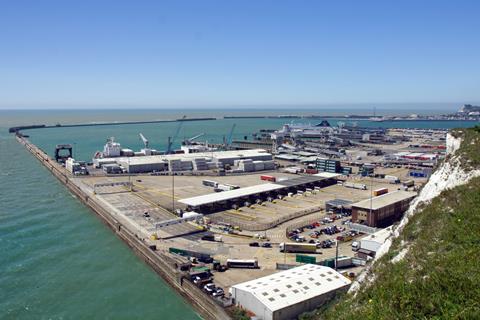The Environment, Food and Rural Affairs (EFRA) Committee has warned that a delay in the implementation of its recommendations to Government on biosecurity will allow “alarming amounts” of illegal imports to cross the border.

Government has responded to a report by the EFRA Committee, stating that the recommendations will only be considered once the sanitary and phytosanitary (SPS) negotiations with the EU have been concluded and implemented.
The Committee said that his would put off powers to reduce “alarming amounts” of illegal imports until 2027 at the earliest.
It said the response came despite a common understanding agreed by the UK and EU to strengthen their cooperation on several areas, and that the United Kingdom should be able to take targeted action to protect its biosecurity. In May, the Government announced that work had begun on an agri-food deal, which will establish a UK-EU Sanitary and Phytosanitary Zone.
The Committee welcomed that the Government has “partially accepted” many of its conclusions and recommendations. In particular, the Government committed to taking a more strategic approach and considering forming an inter-ministerial group on the ‘goods border’, but the Committee noted that it “stopped short” of the taskforce recommended.
“Pathogens don’t wait for policy – that’s why urgency in biosecurity matters.”
Alistair Carmichael MP, EFRA Committee
The Committee’s report highlighted the “limited powers” of UK systems and procedures to halt the large and increasing volumes of meat entering the UK. Since the report was published, the Dover Port Health Authority (DPHA) revealed that more than 20 tonnes of illegally imported meat was seized during the month of September 2025.
Despite some of the recommendations being partially accepted by Government, including a commitment to rebuild the relationship between Defra and DPHA, MPs expressed concern over the “lack of urgency” from ministers.

EFRA Committee Chair, Alistair Carmichael MP, commented: “The SPS Agreement is not going to regulate those who chop up animals and transport them in suitcases – which we witnessed on the Committee’s visit to the Port Health Authority in Dover. The Government’s approach to threats to the UK’s biosecurity is to leave the UK sitting in the firing line. Pathogens don’t wait for policy – that’s why urgency in biosecurity matters.
“African swine fever, foot and mouth disease – whatever the next threat to animal health will be – we cannot wait for the UK’s negotiations with the EU to conclude, never mind wait for implementation. Our report found that there is currently no effective deterrent to meat smuggling and the risks to animal and human health, our food security, farming sector and the economy are significant.”
Lucy Manzano, head of Port Health and Public Protection at DPHA, stated: “We welcome the Government’s response to the EFRA Committee report, which rightly recognises Dover Port Health Authority’s strategic importance to the UK and its critical role in leading biosecurity controls against illegal meat at this border.
“We will continue working closely with DEFRA to ensure the report’s key recommendations are implemented and that future funding reflects the scale of risk posed by disease outbreaks. As the Public Accounts Committee highlighted, resources for DPHA and Border Force must be weighed against the potentially devastating costs of a major outbreak introduced through the Port of Dover.”















